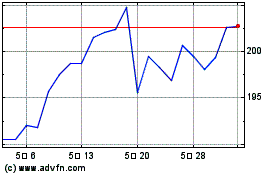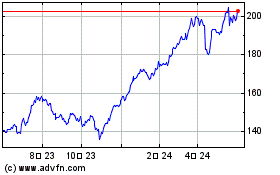Inflation and labor constraints remain top
concerns
There is a renewed sense of optimism among small and midsize
business leaders as they consider their business and economic
prospects for the year ahead, according to JPMorganChase’s 2025
Business Leaders Outlook survey released today. Compared to a
year ago, confidence in the national economy has jumped 12
percentage points to 55% among small business owners, and more than
doubled from 31% to 65% among midsize business leaders. This upbeat
attitude extends to their own companies, with three-quarters of
respondents expressing a positive outlook for the next 12
months.
Recession fears have eased, with 69% of small and 71% of midsize
businesses either uncertain about or not expecting one in 2025.
However, inflation remains a top concern as most small business
owners are seeing an increase in business expenses, and more than
three-quarters of midsize business leaders feel costs are
rising.
“Businesses are entering 2025 with positive momentum after
navigating a period of elevated inflation and interest rates better
than expected,” said Ginger Chambless, Head of Research,
JPMorganChase Commercial Banking. “We’ll be watching closely to see
how this optimism extends throughout the year and influences
companies’ growth strategies.”
Embracing opportunities amid a complex global
landscape
Today, the majority of leaders say they are feeling positive
about the local economy—60% of small and 59% of midsize businesses
express confidence—but the global outlook is more tempered,
reflecting uncertainty around shifts in global trading patterns,
potential tariff impacts and geopolitical tensions.
When identifying challenges for 2025, midsize businesses point
to international tariffs (19%), U.S. competition (18%) and concerns
about China’s trade policies (17%, up 8 percentage points from last
year). Still, nearly half (46%) plan to expand into new geographies
in the next 12 months as they seek growth.
“Throughout history, business leaders have shown a remarkable
ability to turn obstacles into opportunities,” said John
Simmons, Head of Commercial Banking, JPMorganChase. “As they
navigate labor pressures, supply chain dynamics and myriad other
challenges, their tenacity and ingenuity will undoubtedly propel
their growth in the coming year.”
Forty percent of small businesses and close to half of midsize
businesses (46%) say labor shortages, retention and recruiting are
significant challenges. Many are considering tactics like
increasing wages, offering flexible hours or increasing benefits to
address these issues.
Revenue and profit expectations jump as companies focus on
growth drivers
“Small business owners tend to be upbeat by nature, but as the
survey shows, we’re seeing particularly strong levels of optimism
as we start 2025. I look forward to seeing how that enthusiasm
plays out in the economy,” said Ben Walter, CEO of Chase for
Business.
Buoyed by rising optimism, businesses are bullish when it comes
to their companies’ performance projections for 2025. Among small
business respondents:
- Two-thirds predict higher profits (67%) and sales (66%)
- Half (51%) plan to increase spending
- The majority (64%) plan to invest more to support sales by
adding products (35%), funding more advertising (34%) and
increasing social media campaigns (31%), among other
strategies
Small businesses are also investing in technology to fuel
digital transformation. Notably, 48% plan to add artificial
intelligence (AI) applications to their business in the coming
year. While nearly 80% of small business leaders say they are
either implementing, already using or considering adopting AI,
about half (46%) express concern about its potential impact on
business.
Midsize businesses are similarly looking forward to stronger
results in 2025:
- Nearly three-in-four (74%) expect revenues/sales to increase,
up 13 percentage points from a year ago
- 65% anticipate higher profits, up 10 percentage points
- Half (51%) plan to add headcount, up seven percentage
points
- 38% are forecasting higher capital expenditures
To help drive this growth, slightly more than half of midsize
businesses (53%) plan to launch new products and services, and 43%
expect to engage in strategic partnerships and/or investments.
Positioning for sustainable growth
As companies build out their plans for the year ahead, factoring
in the considerations below can help ensure they’re on track for
sustainable growth.
- Press on with market expansion: Conducting regular
market research to understand the competitive landscape and
potential barriers to entry can help identify opportunities for
growth in new markets or segments.
- Unlock working capital: Businesses’ working capital will
need to keep up with expansion plans to accelerate growth.
Strategies to unlock liquidity include increasing profit margins,
improving inventory management and securing working capital
financing.
- Embrace digital transformation: Investing in the right
technology can help businesses stay competitive, streamline
operations and enhance the customer experience. For example,
process automation, increasingly implemented using AI, can be used
for repetitive tasks such as data entry, invoicing and customer
service inquiries, and reducing operational costs.
- Derisk the business: Developing a robust risk management
strategy will help identify and mitigate potential threats and
ensure business resiliency. For example, update cybersecurity
protocols to protect data and diversify suppliers to handle
potential disruptions.
- Plan ahead for business transitions: No matter what
stage a business is in, create a transition strategy for multiple
scenarios – whether it involves a merger, acquisition, IPO,
employee stock ownership plan or another solution – to help bridge
the gap between business success and personal wealth goals.
For more information on the 2025 Business Leaders Outlook
survey, view the midsize and small business reports.
Survey Methodology JPMorganChase’s Business Leaders
Outlook survey was conducted online from November 11-15, 2024 for
small businesses (annual revenues between $100,000 and $20 million)
and from November 12 – December 4, 2024 for midsize businesses
(annual revenues between $20 million and $500 million). In total,
2,644 U.S. business owners and leaders across various industries
participated in the survey. For year-over-year trends, current data
is compared to data collected in the fourth quarter of previous
years. The results of this online survey are within statistical
parameters for validity, and the error rate is plus or minus 3.1%
for the small business findings and plus or minus 3.4% for the
midsize business findings, both at the 95% confidence level.
About JPMorganChase JPMorgan Chase & Co. (NYSE: JPM)
is a leading financial services firm based in the United States of
America (“U.S.”), with operations worldwide. JPMorganChase had $4.2
trillion in assets and $346 billion in stockholders’ equity as of
September 30, 2024. The Firm is a leader in investment banking,
financial services for consumers and small businesses, commercial
banking, financial transaction processing and asset management.
Under the J.P. Morgan and Chase brands, the Firm serves millions of
customers in the U.S., and many of the world’s most prominent
corporate, institutional and government clients globally.
Information about JPMorganChase is available at
www.jpmorganchase.com.
© 2025 JPMorgan Chase & Co. All rights reserved. JPMorgan
Chase Bank, N.A. Member FDIC. Deposits held in non U.S. branches
are not FDIC insured. Non deposit products are not FDIC insured.
Visit https://www.jpmorgan.com/commercial-banking/legal-disclaimer
for disclosures and disclaimers related to this content.
View source
version on businesswire.com: https://www.businesswire.com/news/home/20250107926289/en/
Media Contacts Business Banking Chaffon Davis
chaffon.davis@chase.com
Commercial Banking Janet Yoo janet.h.yoo@chase.com
JP Morgan Chase (NYSE:JPM)
과거 데이터 주식 차트
부터 12월(12) 2024 으로 1월(1) 2025

JP Morgan Chase (NYSE:JPM)
과거 데이터 주식 차트
부터 1월(1) 2024 으로 1월(1) 2025
